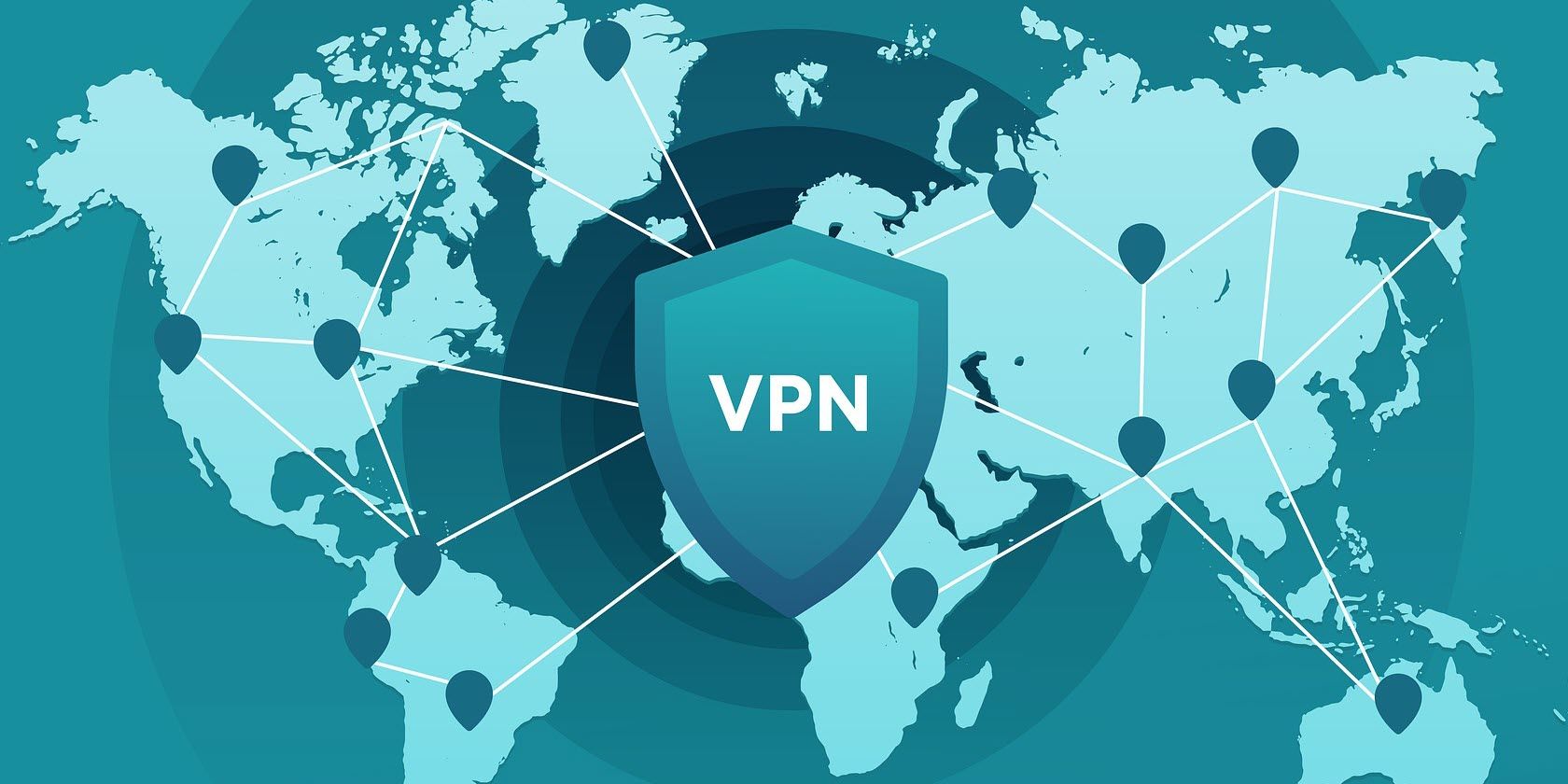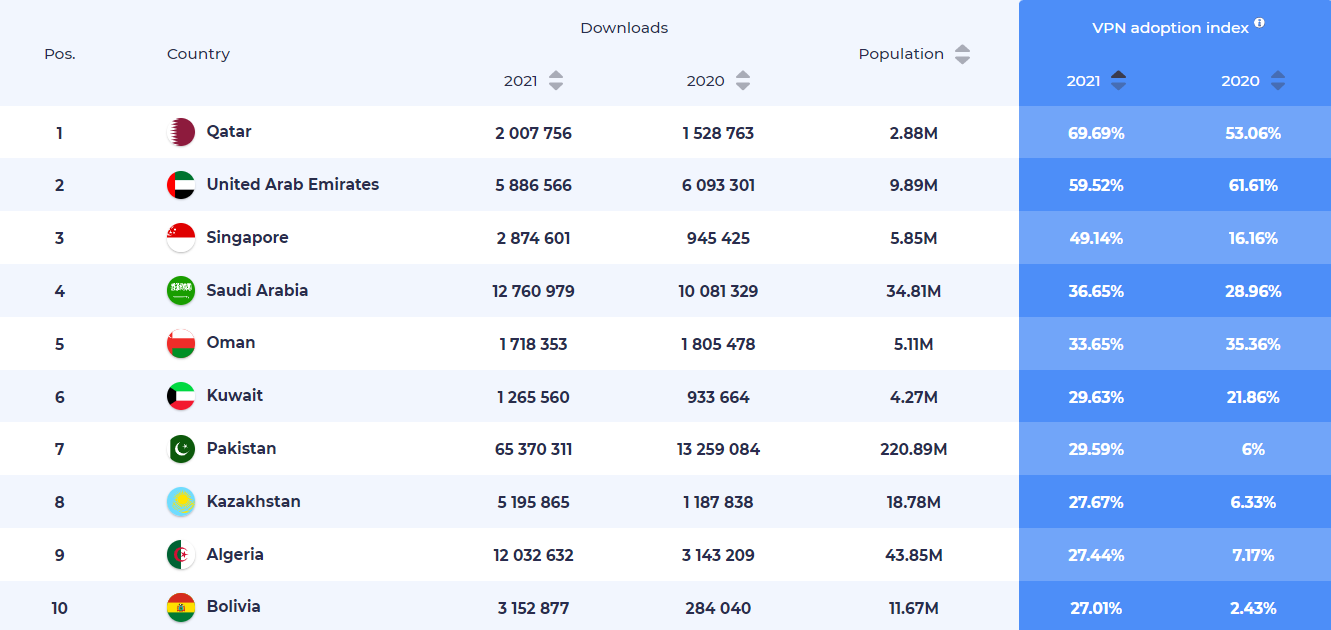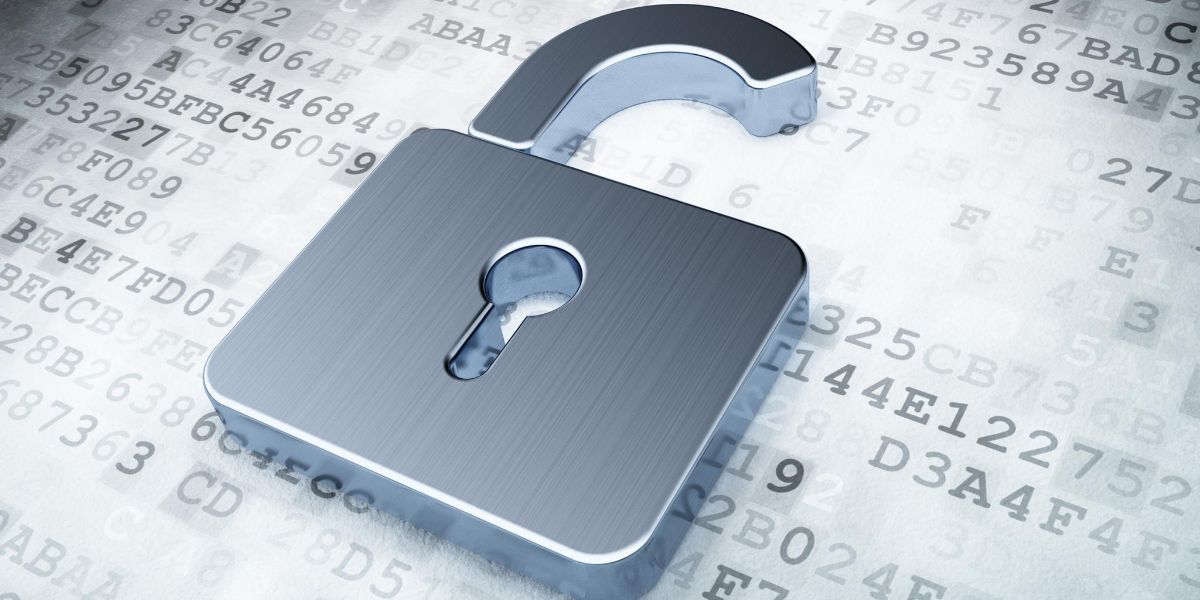Toilet papers, face masks, and hand sanitizers gained explosive adoption in 2021. But something else joined that list of unexpected essentials—VPNs.
According to Atlas VPN, VPN downloads totaled 785 million last year, nearly three times the 277 million recorded in 2020. This is a staggering 184% increase, and a closer look at the data shows that cybersecurity isn't the only reason for the surge.
So, what else caused this surge? We'll find out below, but first, let's check out the regions with the highest adoption index and discuss what drove them to VPNs.
VPN Adoption Index for 2021
Qatar, Saudi Arabia, Singapore, and the United Arab Emirates topped the list of countries with the most significant VPN adoption in 2021, as reported by Atlas VPN. All these countries have some form of internet censorship, which involves government surveillance and restricted access to certain websites or content.
In Qatar, for example, citizens cannot access websites that criticize the government, offer privacy circumvention tools, or are related to pornography and dating.
Similarly, the Communications and Information Technology Commission (CITC) of Saudi Arabia filters the internet and blacklists websites deemed harmful, illegal, anti-Islamic, or offensive. Gatekeepers regularly remove posts and content from social media platforms, censoring LGBTQ, anti-religious, anti-government, and pornographic content.
So, why do users in these countries use VPNs? Let's find out.
VPNs Bypass Strict ISP and Governmental Policies
It's reasonable to conclude that users in these countries primarily use VPNs to bypass site blocks and access geo-blocked websites and applications.
Take Nigeria, for example. In 2021, the government restricted Twitter access because the social media platform removed the President's tweet for violating its rules.
The government announced an indefinite Twitter ban on June 4, and by the time the shutdown went into effect the next day, demand for VPN services had increased by 1409% compared to the same time the previous year.
India is another country in the top 20 that has adopted VPNs to circumvent restrictions. According to Top10VPN, India had 21 internet outages in 2021 alone.
The country also holds the record for the longest internet blackout in a democratic country, lasting from August 2019 to March 2020 in Jammu and Kashmir. With such ongoing blatant restrictions, it's no surprise that citizens are concerned about their digital privacy and security.
VPNs Provide Maximum Privacy and Security
Apart from masking digital footprints, VPNs also help users prevent tracking by Big Tech, browsers, and other mass data collectors.
2021 saw an increase in cybercrime due to the COVID-19 pandemic, and more people are concerned about their online footprints. Approximately 55% of US respondents in a Security.org survey said they used VPNs for general online security in 2021.
VPNs Unlock Access to International Content
Users can stream geo-restricted media content using VPNs, meaning a viewer in New Zealand could watch local shows from the United Kingdom, for example. Streaming numbers soared during the pandemic's peak in 2020, and while the spike subsided in 2021, the demand for streaming content remains high.
According to a separate survey by Security.org, roughly one out of every five people said they use their VPN to access content unavailable in the US.
Will VPN Adoption Continue to Grow?
Maybe, maybe not. The reasons for the VPN adoption surge were largely unprecedented from the data above. Therefore, VPN usage may drop if those circumstances change.
On the other hand, VPNs may become indispensable because privacy and security are critical aspects of internet use, and VPNs are becoming commonplace tools for achieving them.
If you want to enhance your online security but aren't sure about committing to a paid VPN service, try out some free VPNs first before shelling out your hard-earned cash.



